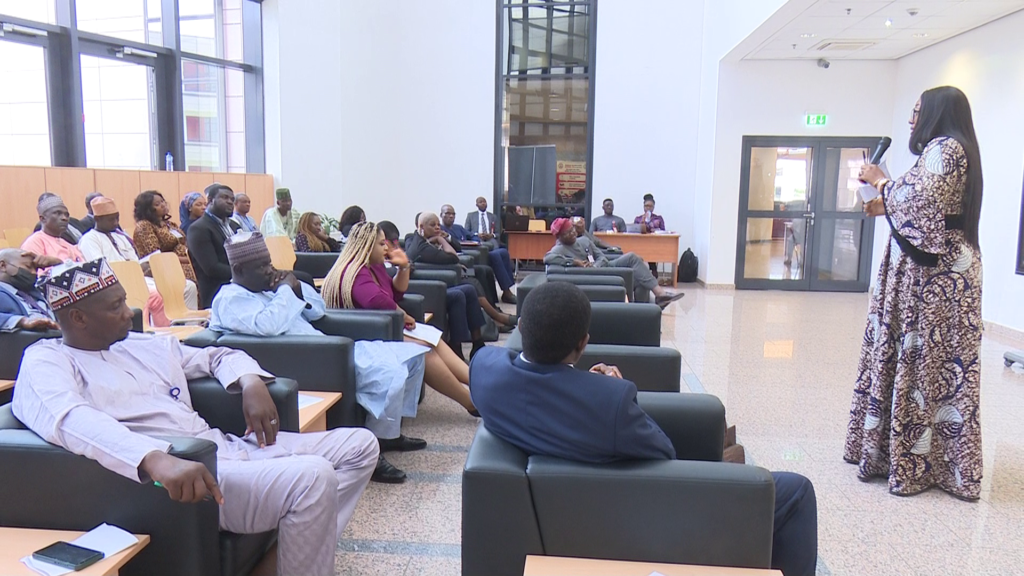Following the successful completion of extensive data collection and analysis during the national terrorism-financing risk assessment for non-profit organizations (NPO) in Nigeria, the Special Control Unit against Money Laundering (SCUML) convened a validation workshop to present the findings to stakeholders. The validation workshop was held exactly one year after the national risk assessment (NRA) of the NPO sector was flagged off. Stakeholders present at the event included leaders of national and international non-governmental organizations, representatives of the Federal Ministry of Justice, Federal Ministry of Budget and National Planning, Federal Ministry of Humanitarian Affairs, Disaster Management, and Social Development, Office of the National Security Adviser, National Intelligence Agency, Department of State Services, Nigerian Army, Nigeria Financial Intelligence Unit, Corporate Affairs Commission, Borno State Government etc.
This risk assessment was commissioned by the Government of Nigeria as part of its commitment as a key player of the Financial Action Task Force’s (FATF) Global Network to combat the financing of terrorism. Mr. Daniel Isei, SCUML director’s opening remarks underlined the importance of the risk assessment which became necessary to fill in the gaps in the country’s compliance with FATF Standards. Nigeria’s Mutual Evaluation Report 2021 which assessed Nigeria’s compliance with FATF Standards noted that the country had not undertaken a categorization of at-risk NPOs, and the nature of threats posed by terrorist entities as well as how terrorist actors abuse those NPOs. That was red-flagged as a major gap in the country’s adherence to FATF’s Recommendation 8 (R8) and Immediate Outcome 10. What the risk assessment of the NPO sector has done is to identify non-profit organizations that may be exposed to terrorist financing risks. The risk assessment, therefore, represents a critical step towards securing a favorable R8 rating for Nigeria by adopting a risk-based approach in the supervision of NPOs in ways that do not impose undue burdens on legitimate NPO activity.
Victoria Ibezim-Ohaeri, the NPO Sector consultant and Spaces for Change’s director chronicled the steps leading to the validation workshop beginning with NFIU’s Typology Report in 2013 and the previous NRA conducted in 2016. In presenting the journey so far, she discussed the various activities undertaken during the NRA such as the virtual briefings for NPOs, capacity-building for stakeholders, and the extensive consultations with NPOs, security agencies, and government ministries, departments, and agencies across the country. The country also took further positive steps during the assessment period by repealing the Terrorism Prevention Act and the Money Laundering (Prohibition) Act which delisted NPOs from the list of designated non-financial institutions (DNFI). Prior to the validation workshop, the draft NRA report was circulated to all relevant stakeholders (technical and working groups) that participated in the exercise for inputs and comments.
Ben Evans, the R8 technical expert, and NPO sector consultant also shed light on the next phase of the assessment focusing on the mitigation measures for the vulnerabilities identified during the assessment. In this connection, it is important for NPOs to recognize that the risk assessment exercise is not looking to identify organizations that have been abused for terrorism financing purposes; instead, the purpose is to identify where terrorist financing vulnerabilities may be greater, such as where legit organizations doing important work may find themselves exposed to a potential terrorism financing risk. So, extra care must be taken to support these organizations so that they can continue their important work in a way that is safe. That is what the risk assessment is about. The mitigation phase of the assessment involves working with those subsets of NPOs at risk to manage those risks going forward.
Ms. Ibinabo Amachree presented the findings of the NRA, highlighting the features and types of NPOs which by virtue of their activities or characteristics, are likely to be at risk of terrorist financing abuse. Eleven features, types, activities, and characteristics of
NPOs were assessed as inherent vulnerabilities that are likely to increase the risk of TF abuse. The most significant single factor in the level of risk faced by an NPO is geography, with NPOs operating in the insurgency- and terrorism-ravaged areas facing a significantly greater risk than NPOs in other parts of the country. The presentation provoked questions, robust discussions, and suggested edits from stakeholders. In his final remarks, the SCUML director assured stakeholders that all comments and inputs received will be considered in the final report. The NRA findings and the outcomes of the mitigation assessment will inform the development of a supervisory methodology accounting specifically for relevant TF risks and their application to the NPO sector.






















How do I obtain a copy of the report on Risk Assessment of NPOs?